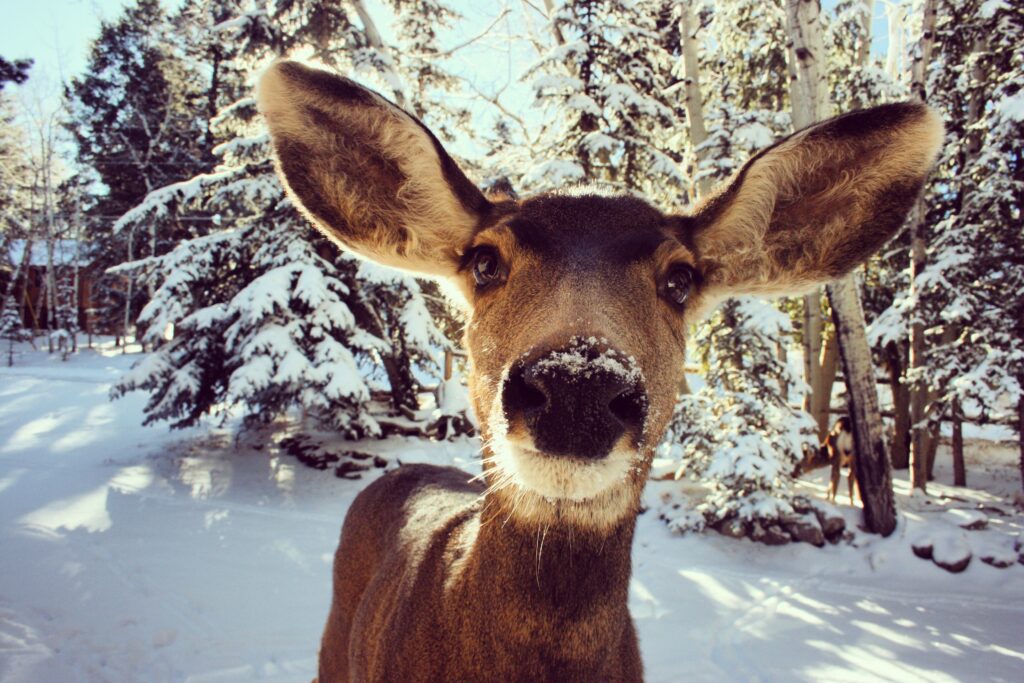What Are the Most Common Hunting Violations in CO?


Hunting is a big part of our culture in Colorado. It’s a tradition that has been practiced by our citizens for generations, and it was essential to the survival of our forebearers.
There are certain precautions that must be taken to make sure hunting is safe and humane. When hunters don’t follow the rules, people can get hurt or killed, private property can be damaged, and animals may be subject to unnecessary suffering. Get to know the rules and respect people and wildlife at all times.
What Is Trespassing?
Any time you enter private lands without permission of the owner, you are trespassing. Hunting, fishing, or performing any hunting-related acts on private property is illegal. You must immediately vacate private property if you are requested to do so by a landowner, employee, or person with apparent authority. It is also unlawful to obstruct an entrance or exit to private property.
You can be cited for trespassing even if private lands are not fenced or clearly marked with visible signs. Evidence of cultivation is one clear sign that you are on private land. This may include soil that is as loosened for crops, artificial irrigation, planted trees, or the presence of annual grasses.
Failure to obey trespassing laws may cause your hunting license to be revoked, and you may be prohibited from obtaining a new license, tag, certificate of registration, or permit for a period of up to five years.
Proving You Have Permission to Hunt on Private Property
To legally hunt on private land, you need to have a general description of the property, the name of person in charge, and their signature. You must provide your permission cards upon the request of any landowner, employee, or person with apparent authority.
Duty to Pursue Wounded Prey
Hunters must make a good faith effort to pursue wounded prey. But you will be trespassing if you do not obtain permission from the owner before entering private property, even if you are pursuing a wounded animal. Property owners in Colorado are generally sympathetic to hunters making this request because they realize it’s inhumane to allow a wounded animal to wander any longer than necessary.
Property owners often feel like they are being taken advantage of when they come across hunters on their property who tell them they are pursuing an animal if there is no evidence that an animal has actually been wounded.
Common Hunting Violations
Whether you are new to hunting or a seasoned veteran, you will want to have the most up-to-date information about licensing and other laws related to hunting. Contact Colorado Parks and Wildlife (CPW) if you have any questions. Here are some common hunting violations that you will want to avoid:
- Hunting without a license: Everyone who is participating in a hunt must have their own license that includes their Customer Identification Number (CID), and they must carry it with them at all times.
- Never kill and abandon prey: It is illegal to leave an animal carcass behind. All meat must be dressed and prepared for human consumption. Internal organs are not considered edible meat.
- Don’t keep a loaded weapon in a motor vehicle or on a snowmobile: Firearms must be unloaded in the chamber. An electronic-ignition muzzleloader must be unloaded, and the battery must be disconnected and removed from its compartment.
- Carcass tags: Tags must be signed, dated, and attached to all animals immediately after you harvest them. Tags must remain on the animal during transportation and until meat is processed or consumed.
- Never shoot within 50 feet of a public road or highway: It is illegal to shoot a gun, bow, rifle, handgun, or shotgun across a public road, and you must be at least 50 feet away from the centerline before discharging a firearm.
- Always wear visible clothing: While hunting deer, pronghorn, elk, moose, or bear during muzzle load or rifle season, you must wear at least 500 square inches of daylight fluorescent orange or solid fluorescent pink above the waist of an outer garment. This must include a hat or head covering visible in all directions.
- Don’t engage in party hunting: Killing someone else’s game or allowing someone to kill your game is not legal.
- Don’t litter: Please help keep Colorado beautiful and don’t leave any refuse behind. If you can carry it in, you can carry it out.
- Never leave a fire unattended: Make sure all campfires are completely extinguished before you depart.
- Only hunt during legal hours: Hunting is permitted one half-hour before sunrise until one half-hour after sunset.
Your Colorado Wildlife Law Attorney
Are you a sportsman who has been charged with violating state or federal wildlife laws? These laws can be pretty complicated, and the penalties are often severe. Contact the Colorado Wildlife Law Lawyer today by calling (720) 836-1777.
Sit down with us in a FREE, confidential consultation to talk about your case and learn how we can fight for you. We’re on your side.
